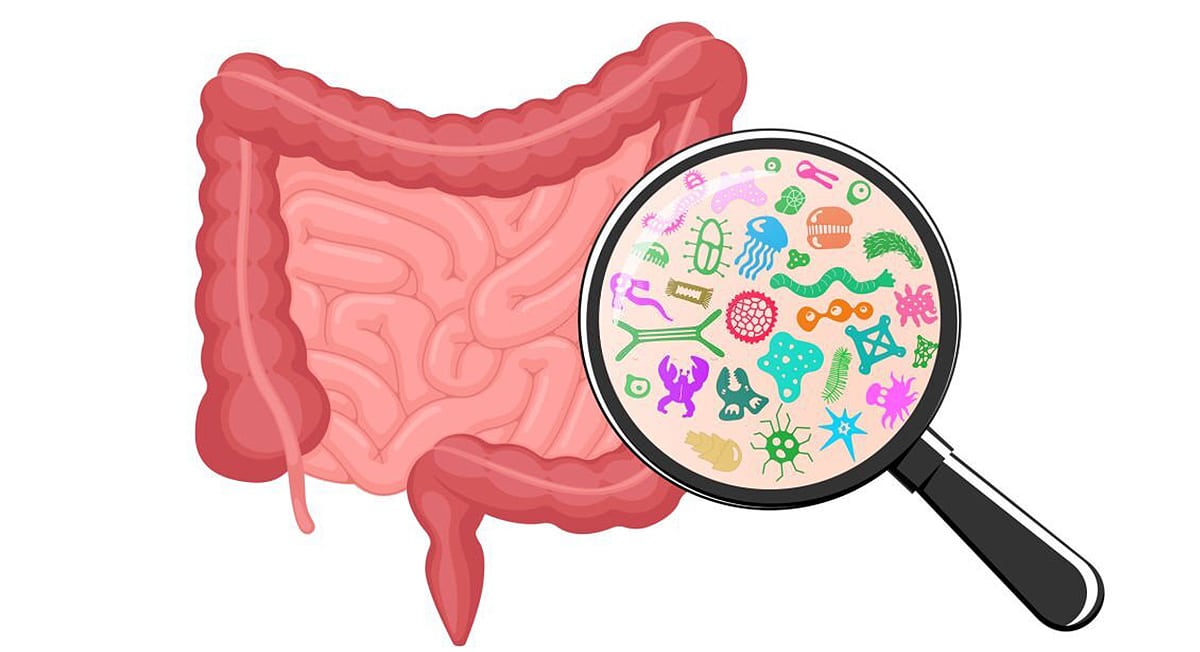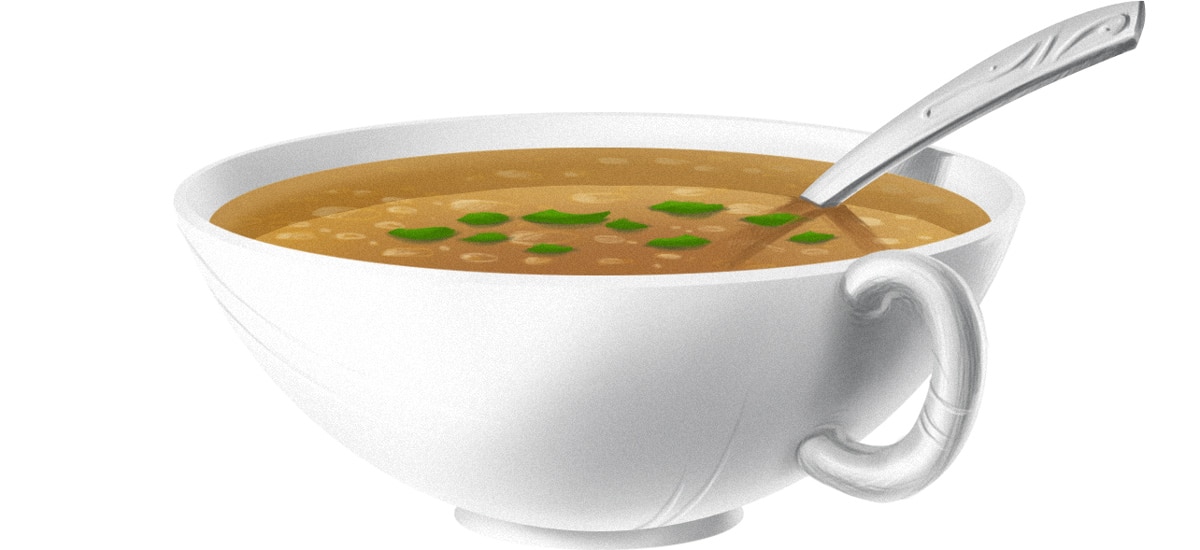
If you go a little more in-depth with your research than the back of the Emergen-C package, you’ll quickly learn that Vitamin C doesn’t actually prevent (or treat) the common cold. Getting enough Vitamin C is very important, but it’s very easy to get enough Vitamin C from a normal intake of fruits and vegetables. Unless you’re subsisting on an all-bacon diet, there’s no reason to take a supplement. Some is good; more is not better.
But with that said, it is cold and flu season, and nobody likes being laid out with a case of the Winter Crud. So what can you actually do to improve your immune function?
Lots of things. Vitamin D is a big one; so are all the old standbys like getting enough sleep, managing your stress, staying hydrated, and eating plenty of quality fat and protein. But here’s a look at another way to keep your immune response running strong: taking care of your gut flora.
Immunity and your Gut
Most of us don’t think about it this way, but the gut is actually an incredibly important barrier between your body and the outside world. Anything inside your gut is technically actually outside your body, with several defenses between it and your bloodstream. That’s why you don’t always get sick even if you swallow some bacteria in your food (which you do every day, because nothing is perfectly sterile).
That makes your gut a huge player in the immune system, because it’s the first line of defense between you and anything dangerous you happen to swallow. Have you ever touched something dirty (like your phone or your keyboard) and then cooked or put your hands around your mouth? Taken a piece of gum without washing your hands? Cooked on a surface that isn’t totally sterile (hint: nobody’s kitchen is totally sterile)? Then you’ve probably introduced some kind of pathogen to your gut, and if you didn’t get sick from it, you have your gut flora to thank.
The gut flora protect against invaders in all kinds of ways. Just to name a few:
- They strengthen the physical defenses of the gut wall. Your body is protected from potential pathogens by a layer of cells lining the gut (epithelial cells) and by chemical barriers (for example, the gut is relatively acidic, which makes it hostile to invading bacteria). Gut flora activate immune functions in the epithelial cells: if they couldn’t communicate with your gut flora, those epithelial cells wouldn’t be able to do their job, and the physical barriers to infection would be compromised. Gut flora also increase the chemical barriers to infection by affecting the pH of the gut environment.
- They compete with potential pathogens for space and food. If your healthy gut bacteria are already using all the resources available, there’s nothing left to feed the bad guys.
- They regulate inflammation and the inflammatory immune response. Inflammation is complicated, but regulating it is incredibly important if you want an immune response that reacts without over-reacting.
- They produce various antimicrobial substances. For example, one species produces an antibacterial substance that fights Gram-negative bacteria (gram-negative bacteria include E. coli, Salmonella, and several different types of bacteria that cause respiratory infections).
Germ-free mice (mice without any gut microbiota) make it very clear just how important these functions are: they have very different immune reactions than regular mice. They get infections more easily, but if you give them a fecal transplant from a healthy mouse, they start doing a lot better.
This function of the gut microbiome starts immediately after birth: breastfeeding kicks off the colonization of the newborn baby’s gut with bacteria from the mother, and those microbes are one of the earliest influences on the baby’s immune system. That first colonization has effects that last throughout the baby’s life – for example, colonization with certain types of bacteria is associated with a lower risk of allergies and other diseases of immune dysfunction.
The gut flora and the immune system also run on a two-way street: what happens to one will affect the other. As this study puts it:
“The intestinal microbiota helps in proper development of the host immune system, which in turn regulates the homeostasis of the microbiota.”
So improving the health of your gut flora will improve your immune function, which will make your gut flora even happier. It’s really a win-win.
This isn't just for gut infections, either. For example, this study and this one discuss how the immune function of the gut flora is important for defense against respiratory infections. This may be especially relevant for older adults: age-related changes in the gut flora are part of the reason why elderly people get more respiratory infections in the first place. If you don't like having the sniffles, you want to take good care of those gut flora!
Improving Gut Immune Function
Now that you know how important the gut is for immunity, what can you do about it? Here are a few kinds of interventions that have shown promise for improving gut-related immunity in different studies:
Probiotics and probiotic foods. There’s a lot of research in animals that probiotics can regulate the gut immune response. Studies on humans are a little harder to come by, but there’s decent evidence that good probiotics help.
- This study found that Acidolphus (that’s the strain in yogurt) L. casei, and L. rhamnosus all affected the immune response in various ways, with potentially relevant implications for actual diseases.
- Here’s a table showing the various different probiotic strains that have been found to affect immune-related gene expression in the gut.

Other dietary strategies. This study found that changes in diet could affect the gut immune response in just a few days, but aside from determining that it wasn’t lactose, the researchers didn’t pin down precisely what kinds of dietary components might modify the immune response specifically. On the other hand, we do know what kinds of dietary changes tend to improve gut function generally. Just to name a few examples:
- Adjusting your fiber intake to a level that works for you (some people do better with more, some people do better with less).
- Eating plenty of gut-healing bone broth.
- Generally reducing inflammation by avoiding excess Omega-6 and getting plenty of Omega-3s.
Lifestyle factors. There are also all kinds of non-dietary ways to modify gut function – the big ones are sleep, stress, and exercise. This paper, for example, discusses how sleep and immunity are connected via the gut. Moderate exercise is a big plus for your gut flora and immune system, while psychological stress is a problem for both of them.
Summing it Up
The gut flora are incredibly important for keeping you healthy through the winter. They help keep the immune response regulated correctly, without either going overboard (attacking harmless things like pollen and giving you annoying allergies) or getting overwhelmed by pathogens. And that’s even without going into the question of autoimmunity.
So if you really want to give your immune system a hand, why not put down the Vitamin C supplements, pick up some fermented foods, and then go to bed early?





Leave a Reply